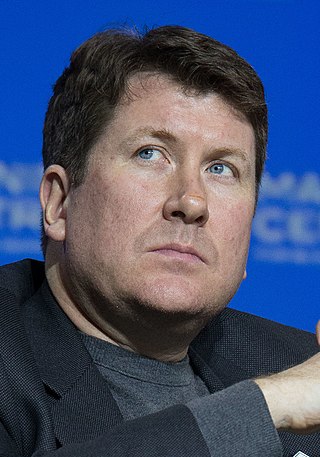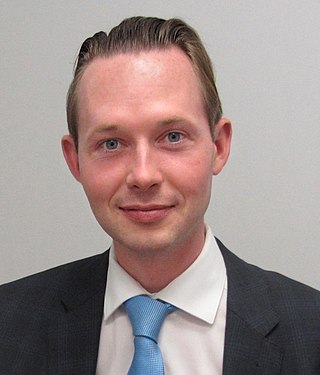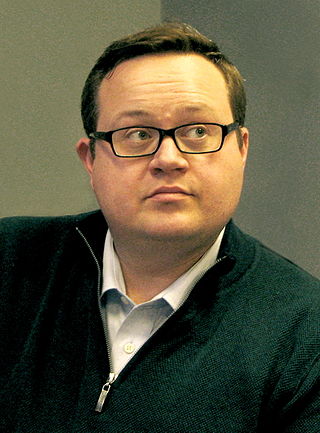
Assisted suicide is suicide undertaken with the aid of another person. The term usually refers to physician-assisted suicide (PAS), which is suicide that is assisted by a physician or another healthcare provider. Once it is determined that the person's situation qualifies under the physician-assisted suicide laws for that location, the physician's assistance is usually limited to writing a prescription for a lethal dose of drugs.
The Canadian Firearms Registry is the gun registry of Canada, requiring the registration of all restricted and prohibited firearms in the country. It is managed by the Canadian Firearms Program of the Royal Canadian Mounted Police (RCMP) as part of the RCMP's responsibilities under the Firearms Act, 1995.

The 39th Canadian Parliament was in session from April 3, 2006 until September 7, 2008. The membership was set by the 2006 federal election on January 23, 2006, and it changed only somewhat due to resignations and by-elections. The Parliament was dissolved on September 7, 2008, with an election to determine the membership of the 40th Parliament occurring on October 14, 2008.

The Civil Marriage Act is a federal statute legalizing same-sex marriage across Canada. At the time it became law, same-sex marriage had already been legalized by court decisions in all Canadian jurisdictions except Alberta, Prince Edward Island, the Northwest Territories, and Nunavut.

Francine Lalonde was a Canadian politician who served on both the provincial and federal levels. Prior to being elected, she was a lecturer, teacher, and unionist.

Suicide is a crime in some parts of the world. However, while suicide has been decriminalized in many countries, the act is almost universally stigmatized and discouraged. In some contexts, suicide could be utilized as an extreme expression of liberty, as is exemplified by its usage as an expression of devout dissent towards perceived tyranny or injustice which occurred occasionally in cultures such as ancient Rome, medieval Japan, or today's Tibet Autonomous Region.

Edward D. "Ed" Fast is a Canadian politician who has served as the member of Parliament (MP) for Abbotsford since 2006. A member of the Conservative Party of Canada, he was Minister for International Trade and Minister for the Asia–Pacific Gateway from 2011 to 2015 under Prime Minister Stephen Harper.
Canada's Access to Medicines Regime (CAMR) is a process established by the Canadian government that allows Canada to enact compulsory licenses to export essential medicines to countries without the capacity to manufacture their own.

The Heritage Lighthouse Protection Act is an Act of the Parliament of Canada for the designation and preservation of historically significant Canadian lighthouses. It was passed by the Canadian Parliament in May 2008. The act set up a public nomination process and sets heritage building conservation standards for lighthouses which are officially designated. First introduced in 2000 as Bill S-21 in the Senate of Canada the bill enjoyed consistent multi-party support despite the unpredictable legislative agendas of minority Parliaments and was repeatedly re-introduced. The final vote of approval was made by the Canadian Senate in 2008 and the bill received Royal Assent on May 29, 2008.

The legality of euthanasia varies depending on the country. Efforts to change government policies on euthanasia of humans in the 20th and 21st centuries have met limited success in Western countries. Human euthanasia policies have also been developed by a variety of NGOs, most notably medical associations and advocacy organizations. As of 2023, euthanasia is legal in Belgium, Canada, Colombia, Luxembourg, the Netherlands, New Zealand, Portugal, Spain and all six states of Australia. Euthanasia was briefly legal in the Northern Territory between 1996 and 1997, but was overturned by a federal law. In 2021, a Peruvian court allowed euthanasia for a single person, Ana Estrada.

Megan Anissa Leslie is a Canadian politician and environmental advocate. She is the president and CEO of World Wildlife Fund Canada (WWFC) and on the advisory board of the Leaders' Debates Commission.

Benjamin T. Lobb is a Canadian politician, who has represented the federal riding of Huron-Bruce in the House of Commons since 2008. He is a member of the Conservative Party of Canada.

Laws regarding euthanasia or assisted suicide in Australia are matters for state and territory governments. As of May 2022 all states have passed legislation creating an assisted suicide scheme for eligible individuals. These laws typically refer to assisted suicide as "voluntary assisted dying".

Euthanasia in Canada in its legal voluntary form is called medical assistance in dying (MAiD) and it first became legal along with assisted suicide in June 2016 to allow terminally ill adults to control their deaths. In March 2021, the law was further amended by Bill C-7 which permits assisted euthanasia in additional situations, including for people with disabilities and chronic diseases. In 2021, more than 10,000 people died by euthanasia in Canada.

The 41st Canadian Parliament was in session from June 2, 2011 to August 2, 2015, with the membership of its House of Commons having been determined by the results of the 2011 federal election held on May 2, 2011. Parliament convened on June 2, 2011, with the election of Andrew Scheer as Speaker, followed the next day with the Speech from the Throne. There were two sessions in this Parliament. On August 2, 2015, Prime Minister Stephen Harper asked the Governor General to dissolve Parliament and issue the writ of election, leading to an 11-week election campaign period for the 2015 federal election. Significant legislation adopted during the 41st Parliament included the Copyright Modernization Act, the Safe Streets and Communities Act, the Jobs, Growth and Long-term Prosperity Act, the Jobs and Growth Act and the Fair Elections Act.

Charmaine Borg is a Canadian politician who served as the New Democratic Party Member of Parliament for the riding of Terrebonne—Blainville in Quebec from 2011 to 2015.

John S. L. Williamson is a Canadian politician who has represented the riding of New Brunswick Southwest in the House of Commons of Canada as a member of the Conservative Party of Canada since 2019. He represented the riding from 2011 until his defeat in the 2015 election. He was elected again in the 2019 election.

Michael Cooper is the Conservative Member of Parliament for St. Albert—Edmonton. First elected in 2015, Michael was re-elected in 2019, and again in 2021. Michael serves as the Shadow Minister for Democratic Reform, and as a member of the Standing Committee on Procedure and House Affairs. Michael is a lifelong resident of St. Albert and an active community volunteer. He is a Lector at St. Albert Catholic Parish and a member of the Knights of Columbus, St. Albert Rotary Club and the St. Albert and District Chamber of Commerce. A graduate of the University of Alberta, Michael received a Bachelor of Arts and a Bachelor of Laws, both with distinction. He was called to the Alberta Bar in 2010. Prior to being elected Michael worked as a civil litigator at a leading Edmonton law firm.

Bryan J. May is a Canadian politician who was elected in the 2015 and 2019 Canadian federal elections to represent the electoral district of Cambridge as a Member of Parliament in the House of Commons of Canada. He is a member of the Liberal Party.

The End of Life Choice Act 2019 is an Act of Parliament in New Zealand that gives people with a terminal illness the option of receiving assisted suicide or euthanasia. The act came into force on 7 November 2021, twelve months after the 2020 euthanasia referendum was declared in favour of the legislation.
















